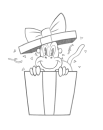$116
$145
You save $29
assignments 2 submissions
Very interesting! I have been using a more "knowledge" based approach but you helped me understand why this is a superior method for accuracy.
How would this be applicable to figure drawing, say on the scale of a normal drawing pad? The outside-in method there helped me to get the structure correct, but I can see the same problems as you mentioned here for example when the time comes to build up the head and you already have not-so-accurate constrution lines.
What would be the "inside" on a figure? Since distances there tend to be a bit larger. Do you finish the head first for example and work downward?
DOWNLOADS
observational-lay-in.mp4
826 MB
ASSIGNMENTS
Please follow along and post your work here.
Very interesting! I have been using a more "knowledge" based approach but you helped me understand why this is a superior method for accuracy.
How would this be applicable to figure drawing, say on the scale of a normal drawing pad? The outside-in method there helped me to get the structure correct, but I can see the same problems as you mentioned here for example when the time comes to build up the head and you already have not-so-accurate constrution lines.
What would be the "inside" on a figure? Since distances there tend to be a bit larger. Do you finish the head first for example and work downward?
Would you think of the construction lines here as already too much? They help me to get the starting point right from which to then work "inside out". But as you clearly point out they should not be used to judge distances of too much.
My main problem as a beginner with lets say just starting the right eye completely on its own is that I can loose the overall structure if I get small things wrong along the way. Because for example if the head is angled correctly or the nose is pointing the right way only emerges later.
I have two questions:
1. Are you drawing sight size?
2. How do you know you won't run off the paper when you get farther away from your starting point?












